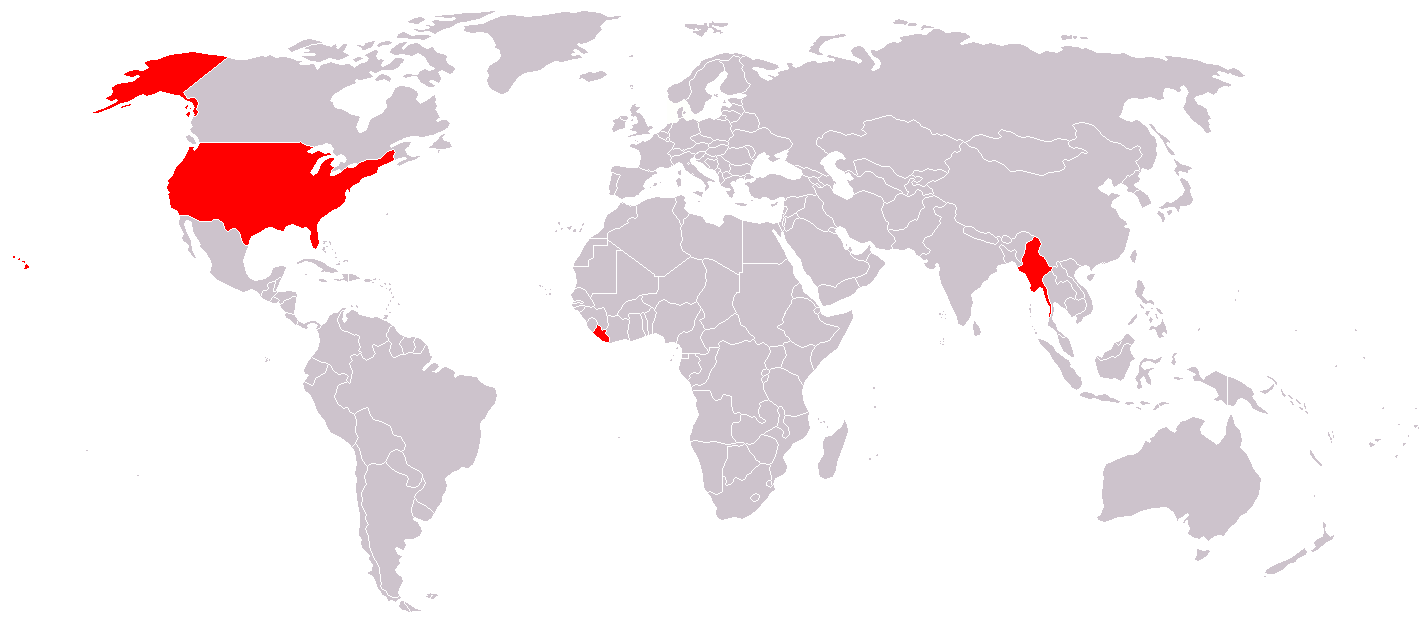The first season of Serial is the most popular podcast of all time. With over five million downloads, it far outpaces anything that’s come before it.
People attribute the show’s success to a number of things:
1) It adopted a television-style narrative approach, unfolding one story over several episodes, yet leaving each of those episodes available for public consumption so the popularity could snowball.
2) Slick and snazzy radio-drama production by the parent show This American Life, which includes, in my mind anyway, Sara Koenig’s aw-shucks, dithering, and conversational tone that was much satirized as the show became more popular.
3) The belief that slow revelations and deliberate pacing of the show would come to a climactic conclusion, up-ending our preconceived notions of the case, the criminal justice system, the nature of reality, or whatever.
4) This was a true story. Somewhere between all the Best Buy phone booths and Nisha calls, there was a real thing that happened. Something that could be ferreted out by examining and reexamining enough of the evidence. Was Adnan really guilty or innocent? There should only be one right answer.
I, like most of my nerdist podcasty NPR-addict friends became interested in the show after hearing the off-hand references that permeated the listening-while-otherwise-distracted community when the show was getting off the ground. I was intrigued by the first few episodes, listening while jogging, or during a long commute. I was trying to keep the characters straight, doing my best to try to stay ahead of the investigation, looking for Easter Eggs, bits of clue the storytellers would weave together for the big finale.
Round about episode nine or ten I began to feel that the story losing its way. Sara spent a lot of time rehashing information we already knew, and more troubling for me, incorporating the feedback of people who were currently listening to the podcast as it aired. This tipped me off that we might be in for a bumpy landing. Unless the Serial producers were being extra crafty and mixing in recent info to make the story juicier, using current feedback from the podcast meant that their investigation was running out of gas.
And sputter out it did. By episode twelve, Koenig’s big revelation was that she didn’t know who killed Hae Min Lee. She felt that the prosecution’s case was not airtight, and that as a good juror she would vote to acquit, but as a person, a human being walking the street, she was not entirely convinced that Adnan was innocent either.
It was a shruggy ending. Well-crafted? Sure. But after a year of reporting, and studying, and tracking down court documents, and talking to witnesses, everything came full circle. Nothing fully concluded, just more, “Meh? Maybe? I dunno?”
This is where the podcast’s listeners tend to break into two camps.
CAMP A says, “Boo Serial, you lead me on with your seductive Koenig mumble/fumble for the truth, I expected you to bring me a conviction! I wanted a KILLER, even if it was the weirdo flasher guy in the bushes!”
CAMP B says, “You dummies, this is journalism, this is REAL LIFE where there are no easy answers to life’s persistent questions! I’m actually GLAD the show ended this way, if only just to spite your narrative expectations about a radio show!
Is Serial Journalism?
Well, it consists of collecting purportedly true information and sharing it with a broader audience, so that checks out. Koenig certainly believes that what she was doing was journalism and not entertainment.
“There’s this internet world, which can get, um, how to put it politely? Out of control. Just throwing this stuff around and interacting with this material that’s incredibly serious to all of us and that we need to treat with the utmost professionalism and care, and they’re just interacting with it as entertainment, so that was the first thing we weren’t totally prepared for.”
–Sara Koenig on Fresh Air with Terry Gross
Defining “journalism” has always been difficult to do. The line between compelling journalism and successful entertainment moves in an out of focus. CNN, FOX, and everyone in between spends a boatload on fancy graphics and inspiring (or frightening) theme music, they edit their pieces slickly, they stack their broadcast for the most gripping information. They leave teasers so you’ll stick around after the commercial break. Why? If they aren’t entertaining you won’t stay long enough to see the advertisements that pay their enormous salaries.
What is broadcasting/news-vending if not entertaining people with current events? Leaving aside the hairy epistemological questions of how we know if something is true, I just want to know, are journalists selling me information for the purity of the facts, or the ear-tingling titillation those facts deliver?
Here’s the thing, I don’t believe that Serial counts as journalism, no matter how much Koenig wants it to.
Firstly, there is a whole lot of conjecture going on, throughout the show. Maybe this? Maybe that? Which is not necessarily out of bounds for a journalist to do, I mean, in an absence of hard evidence how else would you fill time? It can’t be called journalism though.
Secondly, Koenig places herself at the center of the narrative. If nothing else, the whole show is about whether or not Koenig personally believes Adnan’s story. The prosecution and the defense may have failed in the courtroom, but Koenig is most interested in her own perspective. Again, plenty of “hard” journalists have done this too, Cronkite, Jennings, others. But does an Op-Ed count as journalism, just because it appears in a newspaper?
Serial fails as journalism because no one downloads the podcast expecting to consume journalism. The audience wants narrative, drama, suspense, and a pay-off. No listeners actually give a fig about Hae Min Lee or her murder. People listen to the podcast because they want to be entertained, plain and simple.
I believe Koenig’s denials about delivering entertainment are disingenuous. It may not make her job of reporting the facts less difficult or journalistic, but what she is delivering is entertainment, not journalism.
So: Is it fair to hold Serial’s genre of (mostly) truth-telling entertainment to the same genre standards we expect of other entertainment?
Yes.
Serial’s parent program, “This American Life” does it all the time. The thing that makes TAL stories fascinating are the sudden reversals. The bad guys are either really good, or way worse than you thought. The stories build to a climax and pay off a surprise ending, or at least a satisfying one. Unless explicitly distributing fiction (the show’s original name was “Your Radio Playhouse” after all), TAL follows stringent journalistic standards about not fudging data, but still delivers a dramatic punch. It is possible to report a true story that follows narrative points, resolves tension, and delivers everything we expect from fictional storytelling
Good as the show was, Serial’s ending didn’t deliver. Even after all the reporting it was still under baked. After the independent analysis, private investigators, truth squads, and innocence projects, nothing fundamentally changed. The show raised the question of Adnan’s innocence, but then failed to answer that question.
I think they pulled the trigger too early, before every investigative avenue had been explored. They should have waited until the narrative arc was fully fleshed out, as well as the repercussions for all of the real people involved in the story.
The better place to end would have been after the DNA evidence came in. After the current appeals made it through the system. Once the serial killer element had been fully explored. That’s as close to a definitive ending as you can get. Having moved forward with the reasonable doubts you raise.
Story tellers are obligated to resolve the tension they create, even if the resolution isn’t pretty, or happy. If there is no resolution, there should be no story.
What’s Fair Game for Entertainment?
What’s missing from a lot of the discussion about the podcast is the fact that this is the story of a real person. Serial became a minor national craze about a murder case. A case where a teenage girl was really strangled to death. This has led to SNL parodies, quips from Best Buy, and jokes on late night talk shows.
It’s all fine and good to poke at something that’s popular, but the throbbing heart of this show is a real tragedy, where a real mother cried real tears when her daughter was murdered. There’s something strange, voyeuristic, and macabre about laughing under these circumstances.
Also, if it comes out that Adnan really was the killer then all of this has been drug into the light for absolutely no reason. People like Jay and Hae’s family have had their guilt and pain ripped open again. For what?
For our titillation. And that feels wrong to me. I abhor Schadenfreude in all of its pernicious forms. There is nothing worse than mocking someone’s suffering, without their permission, without any purpose or change. It doesn’t absolve an innocent man, it doesn’t find justice for the family of the dead, it just tears down everything these people have rebuilt since the tragedy and ploughs it back under the ground.
If you are going to use real stories with real names, about something as serious as murder, then something needs to come of it. A wrong needs to be righted, somehow, or an injustice exposed.
Suffering
All story-telling revolves around suffering. We call it conflict. Someone suffers and either overcomes or is overcome by it. Without a conflict there is no story. Without struggle. Without suffering.
When a story is true, and nothing in the real world is changed as a result of the telling, then the suffering serves no purpose. Perhaps that story should never be told at all.











3 responses to “Thoughts On Serial Season 1: A Podcast Post Mortem”
Thanks for saying what I think much more articulately than I ever could!
True crime is a strange genre. At the end of the day its still about somebody who’s suffering. I think that’s an extremely serious responsibility.
Thanks!